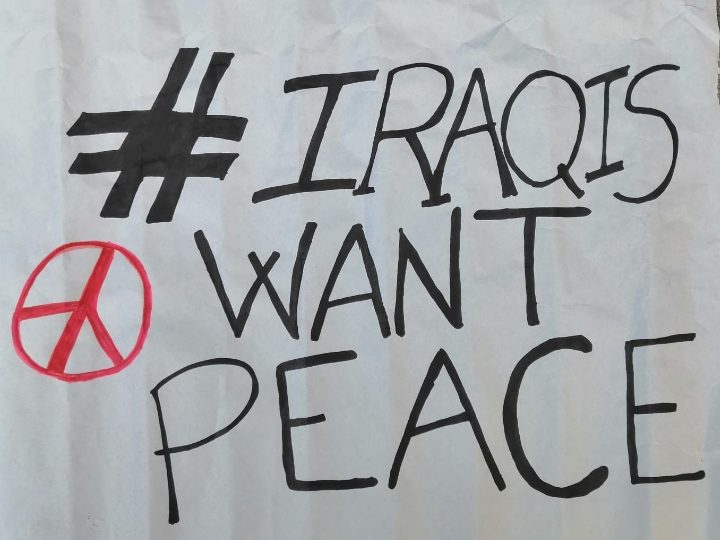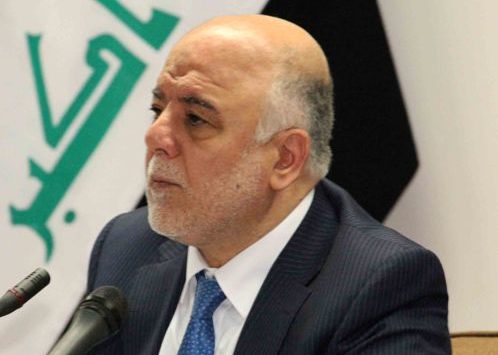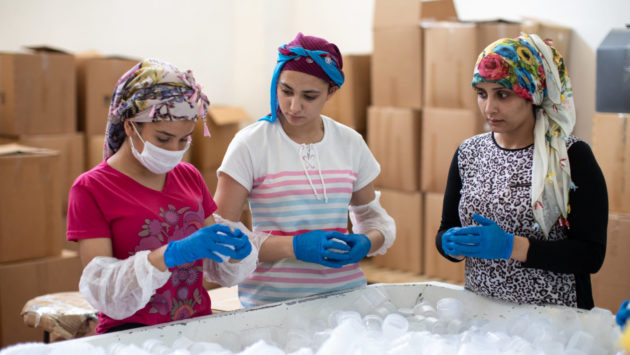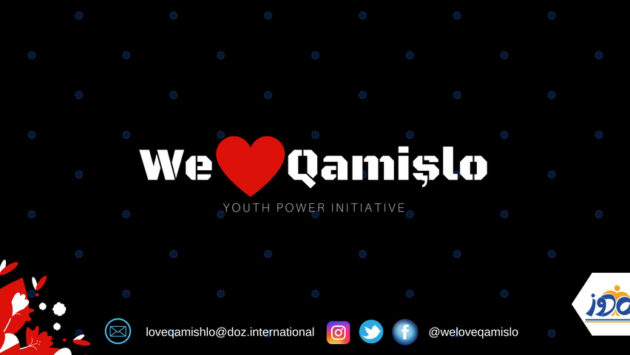Iraqis want peace!
Ever since the last election in October 2021, the political situation in Iraq has been on a downward spiral, with political forces clashing against one another, and leading to a ten-month long impasse in Parliament.
It all started when the results of the election were announced, with al-Sadr’s movement being the winning party, who wanted to establish a majority government with Taqqadum party, led by Al-Halbusi and the Kurdistan Democratic Party (KDP), led by Masoud Barzani. The parties that did not score enough votes, (mainly the Iranian-backed forces), were unhappy with the results, and refused the formation of a majority government that would not include them. Confrontation between the different parties led to the eruption of a new political conflict. Being well armed, these forces were able to turn their frustration into concrete threats to the country’s stability.
Some of the Iranian-backed parties formed an alliance with each other to become ‘the Coordinating Framework’, in order to raise their numbers to have the “greater mass”, and therefore be the one who would form the government instead of Muqtada al-Sadr’s movement, who was the winning party. After months of confrontation, Sadrist deputies resigned from the Parliament, following their leader’s stand, who denounced the corruption of the whole political system.
This conflict has been ongoing for the last 10 months resulting in the Constitutional vacancy becoming one of main sources of apprehension for the Iraqis.
Recently there has been a big mobilising movement to protest in the Green Zone by the Sadrist Movement followers, occurring after the leak of the secretly recorded conversations of Noori Al Maliki, who was threatening to kill Muqtada Al-Sadr, as well as accusing him of creating conflict within the Shia community in Iraq. The party of Al-Sadr demanded an apology from Al-Maliki, yet he denied the leakage.
The demonstration started and Sadrist followers eventually entered the Parliament, occupying it for weeks. They demanded the Parliament announce early elections, to be held with the same electoral law (multi-constituency electoral law) that was used during the last election of October 2021, in order to change members of the Federal Court, and finally to change the Iraqi political order, turning it into a Presidential Republic.
The opposing side (the Coordinating Framework) also invited their followers to protest in front of the Sadrist Movement followers.
By the end of August, a month after the first events had been set into motion, the situation was considerably calmer with peaceful protests taking place within the Green Zone. In this climate, on August the 29th Muqtada Al-Sadr announced his resignation from any political actions, alongside the resignation of the Sadrist Movement and the shutting down of all their offices. This announcement caused outrage amongst Al-Sadr’s followers, and they began to overrun the streets of Baghdad, especially in the Green Zone, where the militia offices of the Coordination Framework are located. Militiamen opened fire and some protesters were killed inside the Green Zone. The situation rapidly escalated to a street war between Saraiya Al-Salam (Al-Sadr’s Militia) and the Coordination Framework Militias’. Heavy weapons were used during this combat, with unarmed protestors and civilians caught in the middle. 30 Civilians were killed and 380 were injured, between 29th-30th of August, as a result of the street wars and protest repression. Sadr ordered his followers to withdraw immediately from the Green Zone and condemned the fight between brothers.
At this moment, the future is unknown. Different scenarios are likely to happen. The Federal court is expected to express itself as per request from Sadrists to dissolve the Parliament and have new elections. On the other hand, the Coordination Framework is calling on the Parliament to resume its work and form a new government. Some political powers call for a temporary consensus government which could work on a new electoral law and hold new elections next year. Finally, there is also the possibility of having another big collective uprising against the whole political system (like Tishreen).
Nowadays, Iraq’s democracy is at risk of sectarian drifts. As members of International and Iraqi civil society, we must express our concern regarding the events of recent days.
Iraqi civil society appeals to the Iraqi Government and political forces to choose the path of dialogue, disarmament and peace. It calls for respect of the demands raised during the 2019 uprising, by young Iraqis, to ask that sectarianism be taken out of Iraqi politics. The demands made, called for the right to exercise civil liberties as Iraqi citizens, in the context of civic politics, with a transparent government and with the inclusion of young people in decision-making positions. Those demands have not been met so far and after recent events, they are even more relevant.
As international and Iraqi civil society we call on the Iraqi government to recognize these freedoms, in memory of all those young people who lost their lives in 2019. We demand respect for the right of any group or individual to protest peacefully, and we denounce any violations by the government against those who protest. We call on International and national bodies to monitor the situation and take action against any human rights violation the witness.
We, as ICSSI members and partners, express our solidarity to Iraqi people, offering our warm condolences to the victims’ families.
In 2019 we stood with young Iraqis and today more than ever we offer our solidarity and our support to them!




